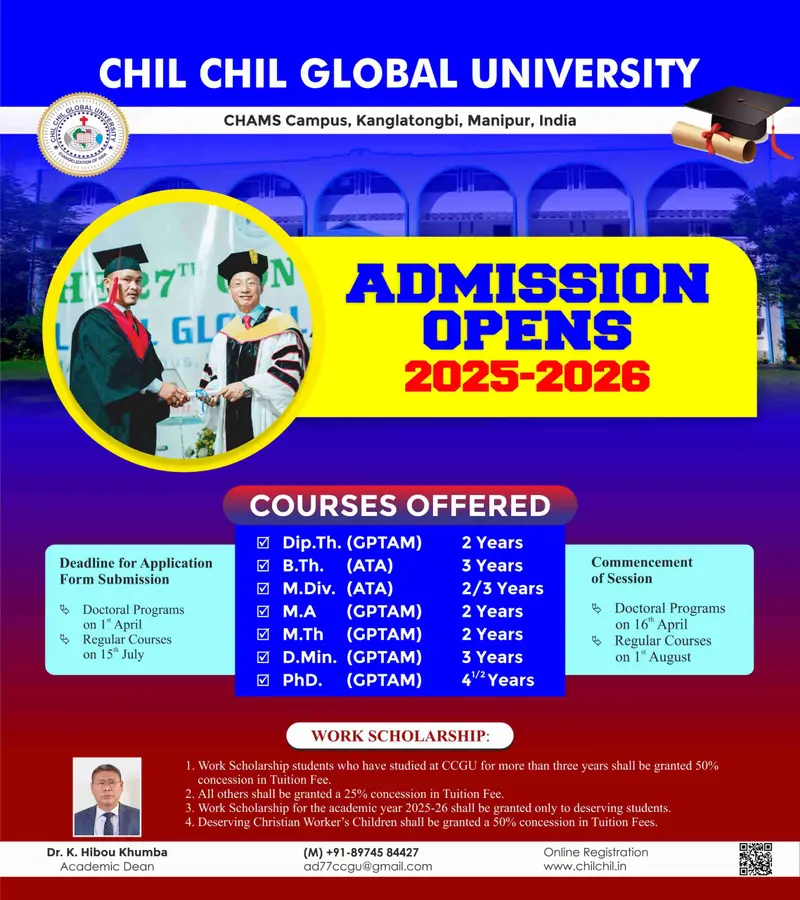Now Reading: Makhel lecture Series 2021, a rendezvous for scholars working on Nagas’ history
-
01
Makhel lecture Series 2021, a rendezvous for scholars working on Nagas’ history
Makhel lecture Series 2021, a rendezvous for scholars working on Nagas’ history

Makhel Lecture Series, 2021 organised by Asufii Christian Institute, Mao, ended successfully on Friday, with a vote of thanks by Dr. Chakho Kaya Mao, the convenor of ACI research cell.
Out of the 418 registered participants, only 180 participants could attend the lectures, due to bad Internet connection in northeast India. Apart from scholars of civil organizations, scholars and professors from 64 universities (including 14 prominent institutes from abroad) registered for the lecture series.
Rev. Loli Kape, Principal of Asufii Christian Institute, expressed his gratitude for the overwhelming number of participants, in his welcome address. He also mentioned that Asufii Christian Institute plans to conduct research that will benefit the people of the region.
Dr. Sahiinii L. Veikho spoke on ‘Why Makhel Lecture Series?’, in his introductory speech. The Makhel Lecture Series aims to bring scholars working on Trans-Himalayan region to share their findings, with special reference on the Nagas. Dr. Sahiinii elucidated on the importance of different perspectives to understand the past.
Based on folklores, many Naga tribes accept `Makhel’ as the final settlement place for the Nagas, before they moved to their present villages; the location `Makhel’ is in Makhel village, Senapati, Manipur. Migration routes of the Nagas, prior to Makhel, are not recorded.
Also read: Nagas are not ‘Mongoloid race’; Prof George van Driem to lecture in ‘Makhel Lecture Series 2021’
Professor George van Driem, a Rolex award winner, lectured on ‘The Ancestral Homeland of the Naga People Based on Language and Gene’. According to Prof. van Driem, the evidence of language and genes indicates a Tibeto-Burman homeland (or Naga homeland) in the Eastern Himalayan region. He opined that the Naga ancestors already lived in the Indo-Burmese hill tracts.
Dr. Jelle J.P Wouters’ talked about `Thinking through Naga origin and migration stories’. His talk began by noting that Naga history is sufficiently wide and deep to accommodate a multitude of origin and migration stories. He subsequently discussed various approaches to their study, all the way emphasizing the crucial importance of oral history in the study of Naga history.
Both the lectures ended with fruitful discussion sessions with the participants, which included prominent scholars and students working on the ‘Naga tribes’.















